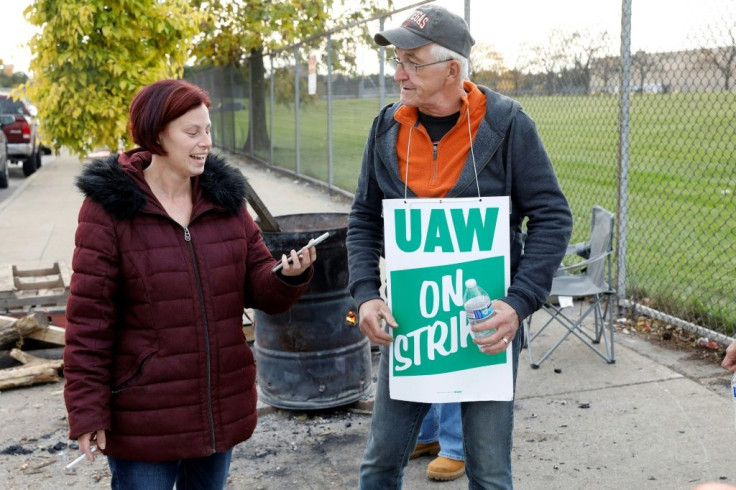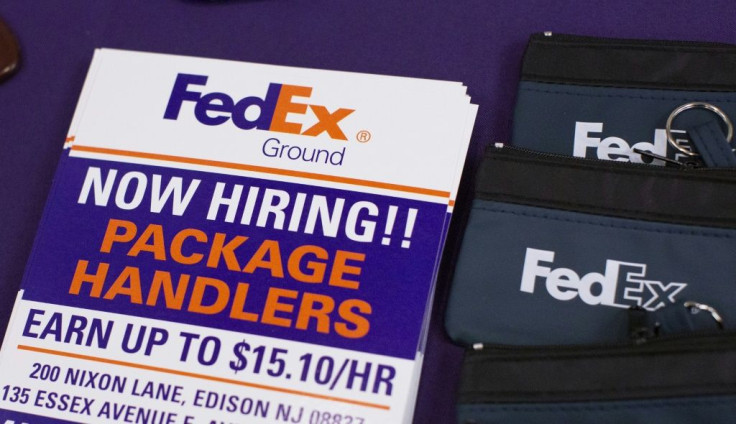US Job Creation Soars In November, Boosting Trump

US job creation soared last month as hospitals, hotels and schools raced to add new workers, a shot in the arm for Donald Trump's economic stewardship as he faces impeachment and a bitter fight for reelection.
The surprise jump in hiring wiped away fears that November would be a lackluster month and suggested the American economy so far is holding up despite a global slowdown.
Payrolls also got a boost as autoworkers were back on the job after a six-week nationwide strike at General Motors plants, according to Labor Department data released Friday.
US firms added a massive 266,000 net new positions, shattering economists' expectations, while the jobless rate fell a tenth of a point to 3.5 percent.
This matched the 50-year low set in September but the November drop was mainly because of a small decline in the workforce.
Job gains in September and October also were revised upward by a total of 41,000, underscoring the strength of labor markets.
"This is wild," Ian Shepherdson of Pantheon Macroeconomics said in a note to clients, warning that a downward revision was possible.
Economists in recent days had begun to worry that America's appetite for workers was on the wane, as some signs pointed to slackening demand for labor as well as a dwindling supply of workers.
But the continued hiring bonanza should bolster the Federal Reserve's decision to keep the benchmark interest rate stable after three cuts this year, with central bankers believing more stimulus is unnecessary.
On Twitter, Trump hailed the "GREAT JOBS REPORT" while top White House economic aide Larry Kudlow said the numbers showed good times were getting better.
"The basic theme here: America is working," he told CNBC.

Job creation has slowed this year, however, as employers on average have added 180,000 workers a month, down from the 223,000 average monthly gains in 2018.
Average hourly wages crept 0.2 percent higher compared to October, but that was slower than forecast. Compared to a year ago, however, the increase was 3.1 percent, well above the rate of consumer inflation.
The wage gains are unlikely to alter the Fed's view, said economist Rubeela Farooqi of High Frequency economics.
"As for the Fed, these data should support the 'on hold' stance, at least for the time-being." she said in an analysis.
Meanwhile, the dip in the jobless rate came with a drop in labor force as people left the job hunt or retired.
The mining and logging sector, which includes an oil industry hit by recent low prices, had another bad month, shedding 7,000 jobs.
There also were cuts in wholesale trade while retailers added a paltry 2,000 workers ahead of the holiday shopping period.
But good news far outweighed the bad. The numbers of people working part time for economic reasons, those not working or looking for work and those who had given up hope of finding a job were all down from their year-ago levels.
Economists say the strong labor market is almost single-handedly holding up the world's largest economy, keeping workers optimistic and leaving them with money to spend.
This has helped offset persistent weakness in the manufacturing and agricultural sectors while businesses have slowed their investments, amid concerns about Trump's multi-front trade wars.
Wall Street rose back into record territory on the jobs numbers, with the benchmark Dow Jones Industrial Average up about one percent shortly before 1600 GMT.
© Copyright AFP 2024. All rights reserved.




















